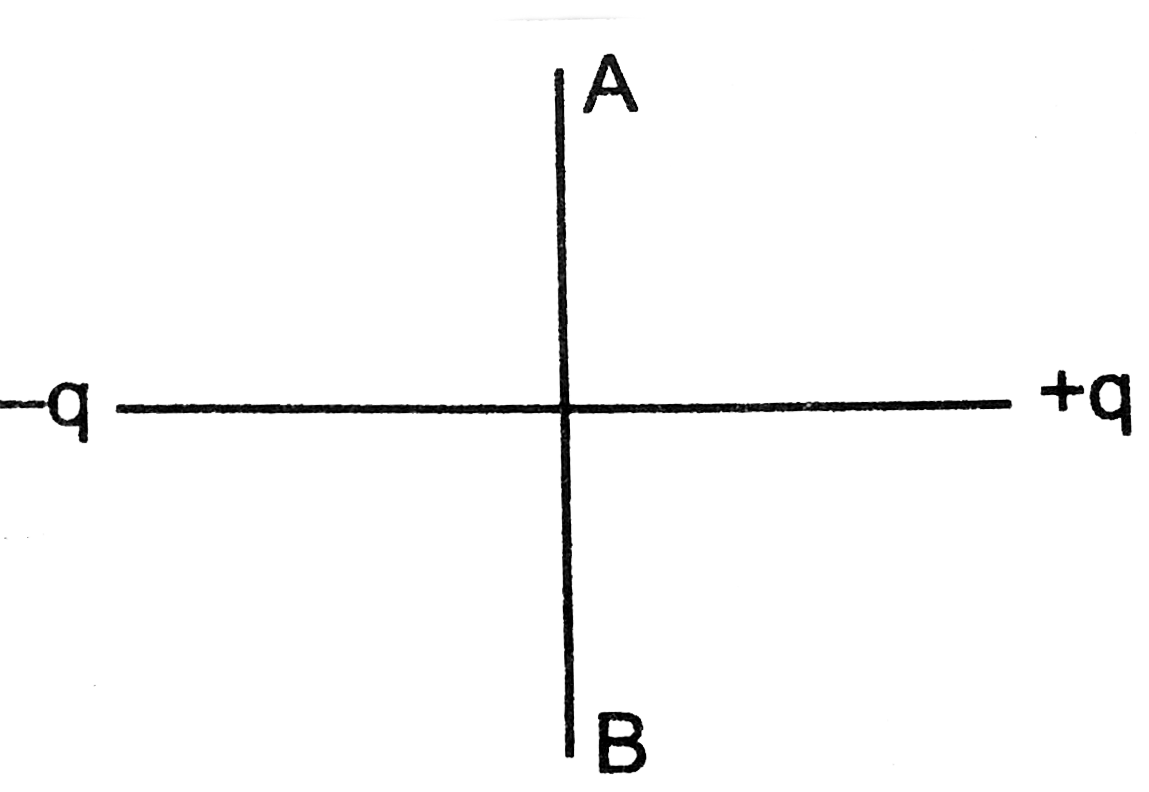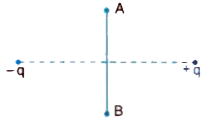A charge q is moved from a point A above a dipole moment p to a point B below the dipole on equatorial plane without acceleration. Find the work done in the process.

Video Solution
Text Solution
Work done will be zero as potential at A and B is same.
|
Updated on:21/07/2023
Similar Questions
Knowledge Check
- Question 1 - Select One
The angle between the dipole moment and electric field at any point on the equatorial plane is
A180∘B0∘C45∘D90∘ - Question 2 - Select One
A positive point charge q is carried from a point B to a point A in the electric field of a point charge +Q at O. If the permittivity of free space is ε0, the work done in the process is given by (where a=OA and b=OB) -
AqQ4πε0(1a+1b)BqQ4πε0(1a−1b)CqQ4πε0(1a2−1b2)DqQ4πε0(1a2+1b2) - Question 3 - Select One
A charge is taken from a point A to a point B. The work done per unit charge in the process is called
Athe potential at ABthe potential at BCthe potential difference between Band DDthe potential difference between A and B
Electric potential at any point in equatorial plane of a dipole is ………. .
View SolutionAn electron having charge e located at A, in the presence of a point charge +q located at O, is moved to the point B such that OAB forms an equilateral triangle the work done in the process is equal to
View SolutionA charge is taken a point A to a point B. The work done per unit charge in the process is called
View SolutionFor an electric dipole, the field at a point on the equatorial line and the dipole moment are
View SolutionThe electric field at a point on equatorial of a dipole and direction of the dipole moment
View Solution


